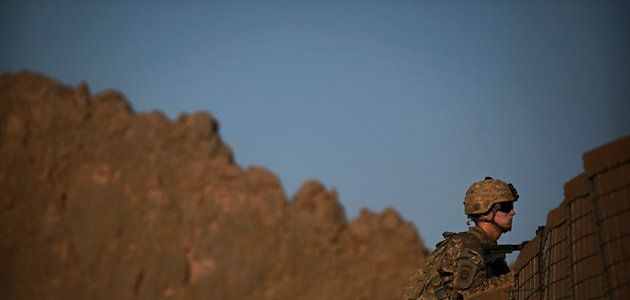
No one doubts that Michael Steele suffers from chronic foot-in-mouth disease. So when Steele, the chairman of the Republican National Committee, declared recently that Afghanistan was a war that Obama had chosen, and that America shouldn't get bogged down in a place where "everyone who has tried over a thousand years of history has failed," he initially encountered the usual reaction from conservatives leery of his leadership: derision and calls to resign. Not only were his facts wrong, he seemed to be muddling a key GOP message. One does not allow Democrats to out-hawk Republicans.
Then a funny thing happened on the way to the chopping block. The controversy quickly died. Steele retracted part of his statement, and other leading Republicans and conservatives stepped up, if not always to Steele's defense, at least to second his skepticism about Afghanistan. Fiery pundit Ann Coulter called Steele "absolutely right" and laced into neocon hawks Bill Kristol and Liz Cheney, who were among those who had called for Steele to resign. Some GOP legislators, like Rep. Tim Johnson of Illinois—who has long opposed funding for both Afghanistan and Iraq—even wrote notes of support to Steele. "Since March our office has gotten 450 e-mails on Afghanistan," an aide to Johnson told NEWSWEEK, "and only three have said 'send more troops.' "
Some newer GOP members of Congress allied with the Tea Party, like Rep. Jason Chaffetz of Utah, say doubts about the endless drain of Afghanistan are beginning to penetrate a movement that has, until now, been obsessed with the domestic aspects of big government. "America is weary," says Chaffetz. "We're fast approaching a decade [of war] and no end in sight. And I think you have a lot of people who have less and less confidence in the president." Chaffetz, like other congressmen who have voted against Afghan funding, says more of his House colleagues are quietly cheering him on. "I had a number of members say 'I wish I had the political guts to do what you did, because I think it's right.' " Chip Hanlon of RedCounty.com, a California-based blogger and Tea Party activist, says the issue resonates with the "true libertarians" in the movement. While they remain a minority, they're usually the loudest and angriest at meetings, says Hanlon. "They saw Michael Steele's comments as the first right thing he said."
Now some leading conservative politicians—especially those thinking about presidential politics—are jumping in to question Obama's Afghan policy from a very different tack. Among them is Newt Gingrich, who is considering a 2012 run. In a speech he plans for the end of July, the former House speaker will hit the president hard, siding with hawks like Kristol. Gingrich thinks the U.S. can't afford to fail in Afghanistan, but it certainly will unless Obama's July 2011 deadline to begin withdrawing troops is dropped. "The morning we collapse in Afghanistan, the energy level of our enemies will quadruple," Gingrich told NEWSWEEK. "This is not a war of choice." The problem, he added, is that "the president's current strategy is hopeless … If you have a commander in chief that no one believes, and a strategy that can't succeed, then I think it becomes very difficult to get people to carry water for him."

Obama still has to worry more about keeping the support of his own Democratic base on Afghanistan than the GOP. Only seven Republican House members voted for a recent bill restricting funding, compared with 93 Democrats. And while the president has been attacked by Republicans on almost every front—health care, stimulus spending, financial reform—for most of his 18 months in office, he's mostly gotten a pass from the GOP on the conduct of America's two wars.
But Obama's poll numbers have been plummeting, especially since the controversy in late June over critical comments by then-Afghanistan commander Gen. Stanley McChrystal and his staff, and Republicans doubtless want to capitalize on that. For those on both sides of the emerging GOP divide—the stick-it-out hawks and the shut-it-down skeptics—the only unifying theme seems to be a lack of faith in the president and his ability to explain what success in Afghanistan will look like. Among those who have recently chimed in are Richard Lugar, the former head of the Senate Foreign Relations Committee. "Absent a major realignment on the ground, it's unrealistic to expect that a significant downsizing of U.S. forces could occur" by Obama's deadline, Lugar said last week.
Obama still has the House and Senate leadership from both parties mostly with him. "I don't think anybody [significant] is ready to jump ship yet," says Republican consultant Vin Weber. Democrats, moreover, may be able to take advantage of the radically mixed messages from the GOP. But if Steele, in his fumbling way, is a harbinger of things to come, time is beginning to run out for the president. And he needs a great deal more of it if he's ever to succeed in Afghanistan.
Uncommon Knowledge
Newsweek is committed to challenging conventional wisdom and finding connections in the search for common ground.
Newsweek is committed to challenging conventional wisdom and finding connections in the search for common ground.





